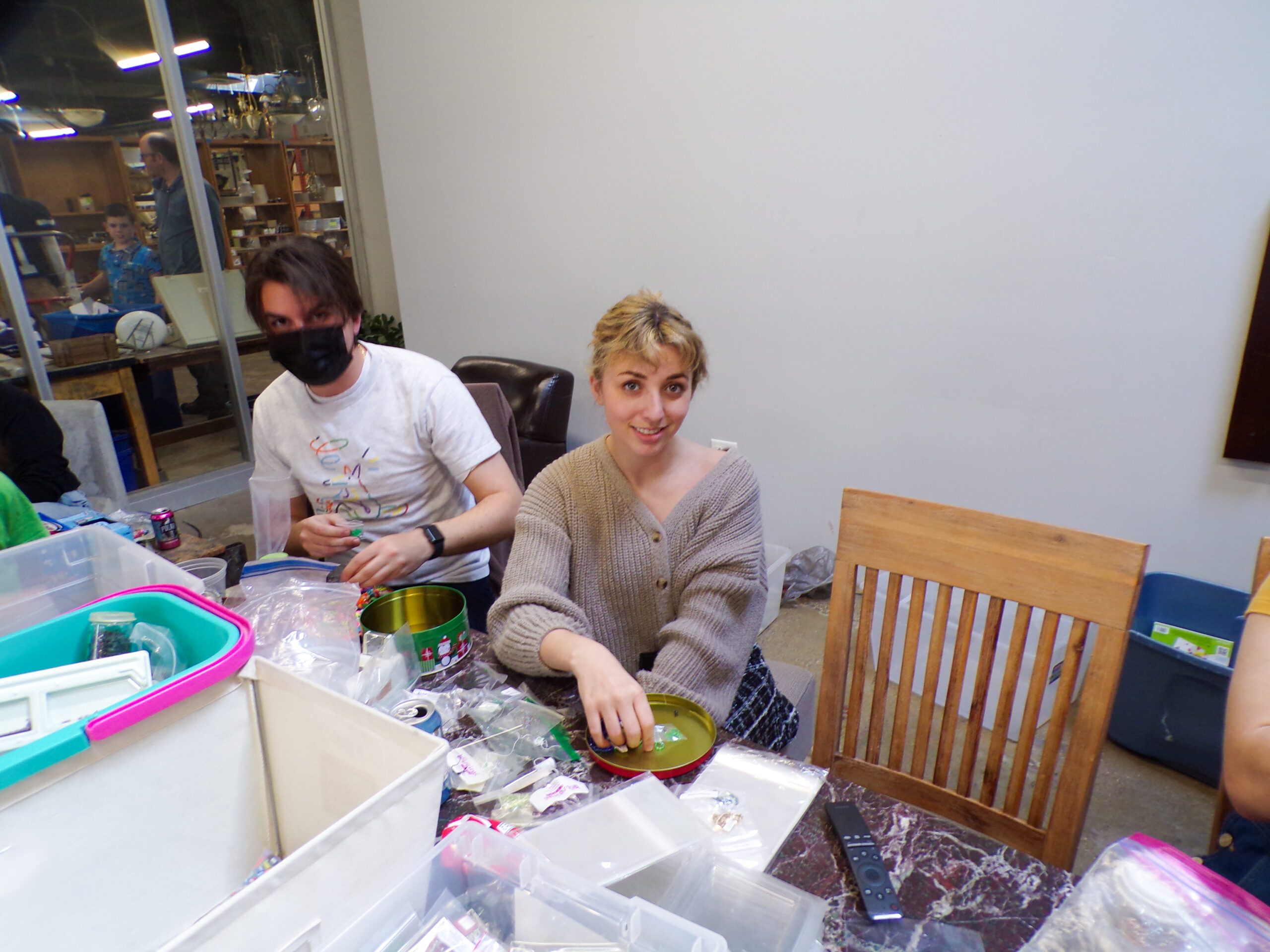Every sporting event hosted at Gentile Arena on Loyola’s Lake Shore Campus (LSC) strives to produce zero waste, following an initiative by the Student Government of Loyola Chicago (SGLC) in 2014.
Every sporting event hosted at Gentile Arena on Loyola’s Lake Shore Campus (LSC) strives to produce zero waste, following an initial effort by Student Government of Loyola Chicago (SGLC) in 2014 to make one game each season zero-waste. The initiative was expanded to all athletic games during the 2018-19 school year, which is currently still in place.
Megan Conway, the sustainability manager with the university’s Office of Sustainability, said in order to achieve zero waste at all home games, anywhere from one to five zero waste stations are set up surrounding the arena depending on the size of the crowd.
These stations are attended to by volunteers who are recruited by the university’s Office of Sustainability. Ticket holders may dispose of their trash, recycling and compost properly at any of these stations with guidance from the volunteers according Conway.
Conway said although the university still produces some waste from these games, they have an end goal of producing zero waste at their sporting events.
Volunteers are not limited to students from the School of Environmental Sustainability, according to Conway.
Audrey Eros, a senior environmental science: conservation restoration ecology major, is an intern for the Office of Environmental Sustainability on campus. Eros said there are about 10 interns for the Office of Sustainability, but she is in charge of heading the zero waste program at Gentile Arena.
The university has a goal of a 95% landfill diversion rate, the amount of waste which avoids going to a landfill, according to the sustainability section of the Loyola’s Athletics website.
Conway, who has worked at Loyola since September 2021, said the process begins with the selection of compostable and recyclable packaging options for the items which are sold within the arena, for which the university works with Aramark — the company which runs all dining services at Loyola — including the catering of university events on campus.
Aramark did not respond to The Phoenix’s requests for comment.
The recyclable materials which are collected from these events are sent to a sorting facility, where they are prepared to be sold for remanufacture, according to Conway.
Conway said the collected organic waste is taken to a composting facility near Lake Calumet in Chicago, about 30 miles away from LSC. There, the waste is piled into football-field length piles which are regularly turned and kept at a high enough temperature to decompose the material. The end result is a nutrient-dense soil which can replace chemical fertilizer.
“When we are making purchasing decisions, we are thinking about the full life span of those items,” Conway said. “Part of this zero waste program is working with Aramark, so that all the packaging that you receive at the concessions in Gentile Arena is recyclable or compostable.”
One of the setbacks the school faced this year during the transition to Aramark Food Services was having to switch from using aluminum bottles of water to plastic due to what was available through their supplier, according to Eros.
Eros said to make up for this, they instead now use compostable food containers. Eros said she hopes to make the switch back to aluminum bottles in the near future.
Jack Scott is a senior environmental policy and philosophy major who has been volunteering with the zero waste program since September of 2022. Scott said he initially heard about the program from a professor who suggested joining the volunteer program to get credit for service hours for his engaged learning class.
Scott said volunteers have the opportunity to sign up for the games they want to volunteer for. He said he has since volunteered at four or five games since last semester. Scott said he believes this program is important because it gives students the opportunity to demonstrate Loyola’s commitment to sustainability to attendees of the games.
“It’s a way to show people from outside of Loyola that students care about what products that Loyola is using at their games and to be able to be responsible about how waste management can be handled at sporting events,” Scott said. “It’s a way to showcase the passion students have for sustainability at school.”
As a campus which strives to be sustainable, Conway said the zero waste initiative is vital to the continuation of these efforts. Loyola is ranked in the top 40 greenest universities in the country, according to the university’s website.
Eros said the role of the interns is vital for the completion of sustainability programs on campus, as they are the ones responsible for the connection of the students with the university staff.
“The interns are in charge of running a bunch of little programs that the Office of Sustainability has, and we also come up with new ideas,” Eros said. “We are kind of a liaison between the student body and the Office of Sustainability.”
Eros said achieving zero waste at games is not only a sustainable practice but also beneficial because of the exposure it provides to people who aren’t as knowledgeable about issues surrounding the environment.
“Zero waste games give a bit of a window into sustainability that I think is not typical of a college athletics program,” Eros said. “Say a random person comes to a Loyola game. They are not planning on thinking about sustainability, but when they go to throw away their trash, they see that we do compost, and it makes them think ‘what is that versus just throwing away my trash?’”
In order to achieve this, the Office of Sustainability also works with the Athletic Department to allow them access into the space and the use of promotions within the games, as well as Allied, the company responsible for cleaning and maintenance at Loyola.
Allied Housekeeping Services declined The Phoenix’s request for comment.
Tom Soboro is the senior associate athletic director at Loyola and has been working at the university since 2015, when the zero waste program was just getting started.
Soboro said he works with student interns from the Office of Sustainability to accommodate them with the facilities and operations they need in order to achieve their zero waste goal.
“Sustainability at Loyola is part of a mission of social justice and education,” Soboro said. “Being able to extend the reach of what they are trying to do and something that’s important to the school. To be able to extend that to athletics, it’s really a no brainer.”
This interest in reduction of waste in athletics is a growing initiative, according to Soboro, who said he has seen more people becoming involved in things such as this nationwide.
Eros, who has been an intern for the Office of Sustainability for two years, said her favorite part about the program is the behind the scenes view it gives her about being green at Loyola.
Sports fans produce 39 million pounds of trash per year, according to the Loyola website. Conway said it’s important that we do our part to reduce this amount every year.
“There are lots that we can recycle and compost,” Conway said. “Sports events in general cause a lot of waste and so thinking more thoughtfully about how Loyola approaches that system and providing opportunities to reduce waste is really important.”
In the future, Conway said she hopes to expand the program through an increase in volunteers and more compostable items available in the concession stands.
Featured image by Grace Mooney | The Phoenix
-

Lilli Malone is the News Editor of The Phoenix and has written for the paper since the first week of her first-year. She is studying journalism, criminal justice and political science, is on the board of SPJ Loyola and was previously the deputy news editor of The Phoenix. She has worked as a Breaking News Correspondent for The Daily Herald, and has interned at Block Club Chicago, Quotable Magazine, and UCLA. Originally from Columbus, Ohio, Malone enjoys traveling, reading, and telling the stories of Loyola and Rogers Park community members.
View all posts











